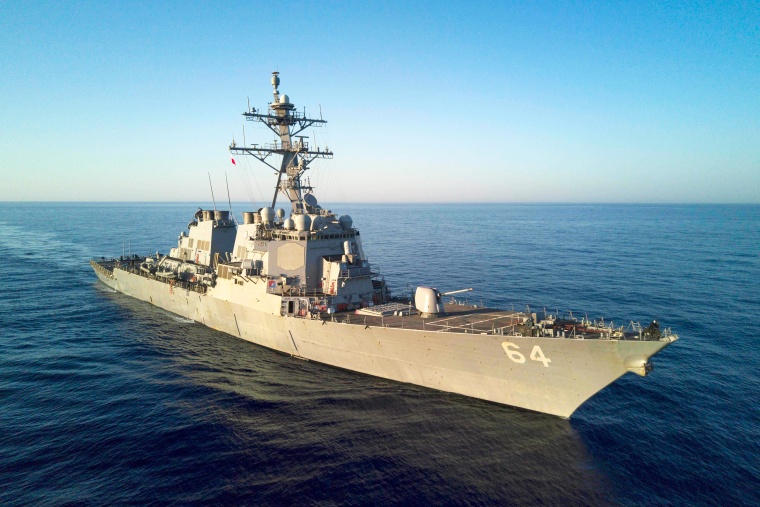On Thursday, a U.S. Navy ship in the northern Red Sea downed three cruise missiles and several drones launched from Yemen by pro-Iranian Houthi forces. The Pentagon said the missiles and drones might have been headed toward Israel.
A senior Israeli official said, “In my opinion, the Houthi missile attack would not have been executed without Iran’s green light.”
On Friday, two rockets were fired at U.S. targets in Baghdad, which a defense official said was consistent with actions by pro-Iranian militias in Iraq.

At least two drones targeted al-Tanf, a U.S. garrison in southern Syria, on Wednesday. The U.S. military shot down one of them, but the other struck the base, resulting in minor injuries among a small number of U.S. troops, according to the Pentagon.
The U.S. is still investigating who was behind the drone flights, but initial indications suggested Iranian-backed militias launched the drones. The pro-Iranian militias in Iraq and Syria have launched numerous rocket and drone attacks on U.S. forces in recent years.
Despite its relatively modest conventional military power, Iran has long cultivated armed proxies in the region to fend off adversaries, extend its political influence and make its enemies think twice before attacking Iran directly.
Michele Flournoy, former undersecretary of defense for policy, told CNBC on Wednesday that it was unlikely Iran would enter directly into the war between Israel and Hamas. But she added that there was a growing danger of an accidental conflict breaking out, especially along Israel’s northern border with Lebanon where Iranian-backed Hezbollah forces have clashed with Israel’s military.
“The risk of miscalculation is very, very high. The risk of one side or the other misinterpreting actions across the northern border and having that escalate is very real,” Flournoy said.

The Office of Director of National Intelligence declined to comment. The CIA did not immediately respond to a request for comment.
On Sunday, President Joe Biden’s national security adviser Jake Sullivan said: “We can’t rule out that Iran would choose to get directly engaged some way.”
Speaking on CBS’s “Face the Nation” on Sunday, Sullivan added: “We have to prepare for every possible contingency. That’s exactly what the president has done.”











